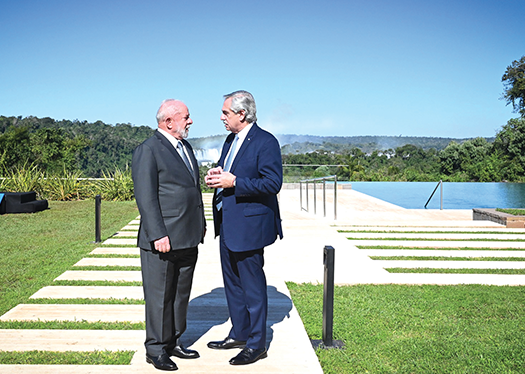
Brazilian President Luiz Inácio Lula da Silva (left) with Argentine President Alberto Fernández at the July 4 Mercosur meeting in Puerto Iguazú, Argentina.(Photo by Argentine President’s Office)
A quarter century after launching talks on a free-trade pact, South America’s four-nation Mercosur bloc and the European Union earlier this year seemed close to ratification of the agreement. The momentum has stalled at least temporarily, however, with Argentina and Brazil, Mercosur’s two largest countries, pushing back against what appear to be new EU environmental demands that could affect Mercosur primary-goods exports. EU-Mercosur talks got underway in 1999 with the goal of creating what economists have said would be the world’s largest free-trade zone. A deal was signed in 2019, but last-minute wrangling about the new EU environmental conditions has dimmed prospects that the EU and Mercosur’s four full member countries—Argentina, Brazil, Paraguay, and Uruguay—will ratify the treaty in the immediate term. “The presentation of new EU environmental demands presents us with a partial vision of sustainable development, one overly focused on... [Log in to read more]